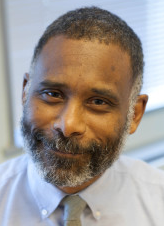Find a CBT Therapist
Search through our directory of local clinicians.
Norman Cotterell

Mentor Spotlight
ABCT’s Spotlight on a Mentor program aims to highlight the diversity of excellent research mentors within the organization’s membership ranks. Our goal is to spotlight both promising and accomplished mentors across all levels of academic rank, area of specialization, and type of institution.
Norman Cotterell, PhD, earned his AB in Psychology from Princeton University and his PhD from the University of Delaware. He completed his postdoctoral fellowship at the Center for Cognitive Therapy at the University of Pennsylvania in 1990, under the direction of Dr. Aaron T. Beck. Dr. Cotterell is a Founding Fellow of the Academy of Cognitive Therapy and has served as a protocol therapist on a variety of large-scale psychotherapy outcome studies, including drug abuse, panic disorder, and the prevention of depression. He has lectured extensively for hospitals, churches, and support groups, and has conducted workshops across the United States and in Brazil. He has supervised residents and fellows in cognitive therapy and is a past recipient of the O. Spurgeon English Faculty Award for teaching psychiatry residents at Temple University. He is a faculty member and therapist at Beck Institute who treats older adolescents, adults, older adults, and couples with a variety of difficulties.
Response:
I strive to provide a mix of meaningful activity in mentoring students: I’m sometimes a coach, a counselor, a sounding board, an advisor, a resource, a student, a seeker, and even a role play partner providing practice in skills they have or may hope to apply. My philosophy is to discover what they want and need and do my best to fulfill it. My primary strengths may be my passion and curiosity for the field. And it’s large field! I love to learn about mentees’ culture, experiences, academic interests and how these intersect. I love to immerse myself in all they introduce to me and how that dovetails with my training in Cognitive Behavioral Therapy. My mentees have enabled me to step outside my own frame of reference to understand a bit more of the world: from the Nigerian Igbo experience in America, to the challenges of being Telugu Dalit (former Untouchables) in India, to the entrepreneurial experience in North Carolina. I’ve learned how such experiences can enable people to be more empathic clinicians, more able researchers, and more powerful agents of change. In sum, I have one word of advice to professionals starting out as mentors: Listen.
